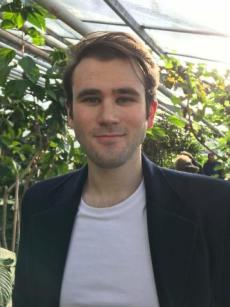Daniel Pritchard
MGSE Student Representative
MGSE Student Representative

Evolution and Sexual Conflict Group
Institute for Evolution and Biodiversity
Hüfferstr. 1
D-48149 Münster, Germany
Tel.: +49 251/83-21660
dpritcha@uni-muenster.de
Nationality: British 
Molecular mechanisms of the Fecundity/Longevity Trade-off in Drosophila melanogaster
In many organisms across the animal kingdom, the Fecundity/Longevity (F/L) trade-off results in a negative association between higher investment into reproduction and an organism's survival. This according to the 'Disposable Soma Theory' is a result of an organism's limited resources being used for purposes of reproduction as opposed to somatic maintenance and repair. The major molecular pathways underlying the F/L trade-off, predominantly Target of Rapamycin (TOR) and insulin/IGF-1 signalling (IIS), appear to be conserved across species.
There are however interesting exceptions to this F/L rule in eusocial insects. Wherein reproductive individuals of those species both reproduce at a high rate, and live longer than their non-reproductive siblings. It would seem eusocial insects have used parts of these conserved molecular pathways, TOR, and IIS in novel functions to help reverse the trade-off.
The aim of my PhD then is to work with collaborators using eusocial insects to identify candidate genes within the TOR/IIS pathways, as well as potential candidates outside of these pathways. The objective of this being to characterise these genes within a non-social model, Drosophila melanogaster. The second aim of the project will be to highlight the interactions in the pathways, and find potential central pleiotropic hubs, which will be made possible by Drosophila's position as a well-characterised molecular model. The major question of my PhD being whether social insects have managed to reverse the F/L trade-off by evolving novel changes in these conserved pathways.